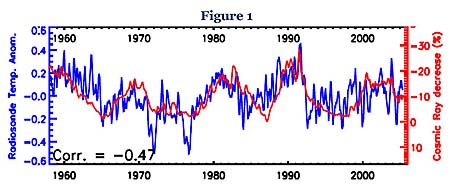According to the Australian BOM the last decade has been Australia’s hottest since record keeping began.
Even if this were true, this in itself is no reason to jump to the conclusion it is all our fault and the world is going to hell in a handbasket. No matter what the ever amusing Minister for Rabbits Peter Garrett has to say.
In fact, as I noted a couple of posts ago, there is no evidence this is the case at all.
But the BOM’s clams are doubtful for a number of reasons.
I’ll say more about this tomorrow, but for today I just note that not one Australian temperature record, high or low, has been set in the last ten years:
AUSTRALIAN CAPITAL TERRITORY
Highest Recorded Temperature:
Canberra 42.2 C (108.0 F) on the 1st February, 1968
Lowest Recorded Temperature:
Canberra -10.0 C (14.0 F) on the 11th July, 1971
NEW SOUTH WALES
Highest Recorded Temperature:
Wilcannia 50.0 C (122.0 F) on the 11th January, 1939
Lowest Recorded Temperature:
Charlotte Pass -23.0 C (-9.4 F) on the 29th June, 1994
NORTHERN TERRITORY
Highest Recorded Temperature:
Finke 48.3 C (118.9 F) on the 2nd January, 1960
Lowest Recorded Temperature:
Alice Springs -7.5 C (18.5 F) on the 12th July, 1976
QUEENSLAND
Highest Recorded Temperature:
Birdsville 49.5 C (121.1 F) on the 24th December, 1972
Lowest Recorded Temperature:
Stanthorpe -11.0 C (12.2 F) on the 4th July, 1895
SOUTH AUSTRALIA
Highest Recorded Temperature:
Oodnadatta 50.7 C (123.3 F) on the 2nd January, 1960
Lowest Recorded Temperature:
Yongala -8.2 C (17.2 F) on the 20th July, 1976
TASMANIA
Highest Recorded Temperature:
Hobart 40.8 C (105.4 F) on the 4th January, 1976
Lowest Recorded Temperature:
Shannon -13.0 C (8.6 F) on the 30th June, 1983
VICTORIA
Highest Recorded Temperature:
Mildura 47.2 C (117.0 F) on the 10th January, 1939
Lowest Recorded Temperature:
Mt Hotham -12.8 C (9.0 F) on the 13th August, 1947
WESTERN AUSTRALIA
Highest Recorded Temperature:
Mardie 50.5 C (122.9 F) on the 19th February, 1998
Lowest Recorded Temperature:
Booylgoo Springs -6.7 C (19.9 F) on the 12th July, 1969
Figures from an amateur site on world temperature extremes. Some readings not yet verified.




